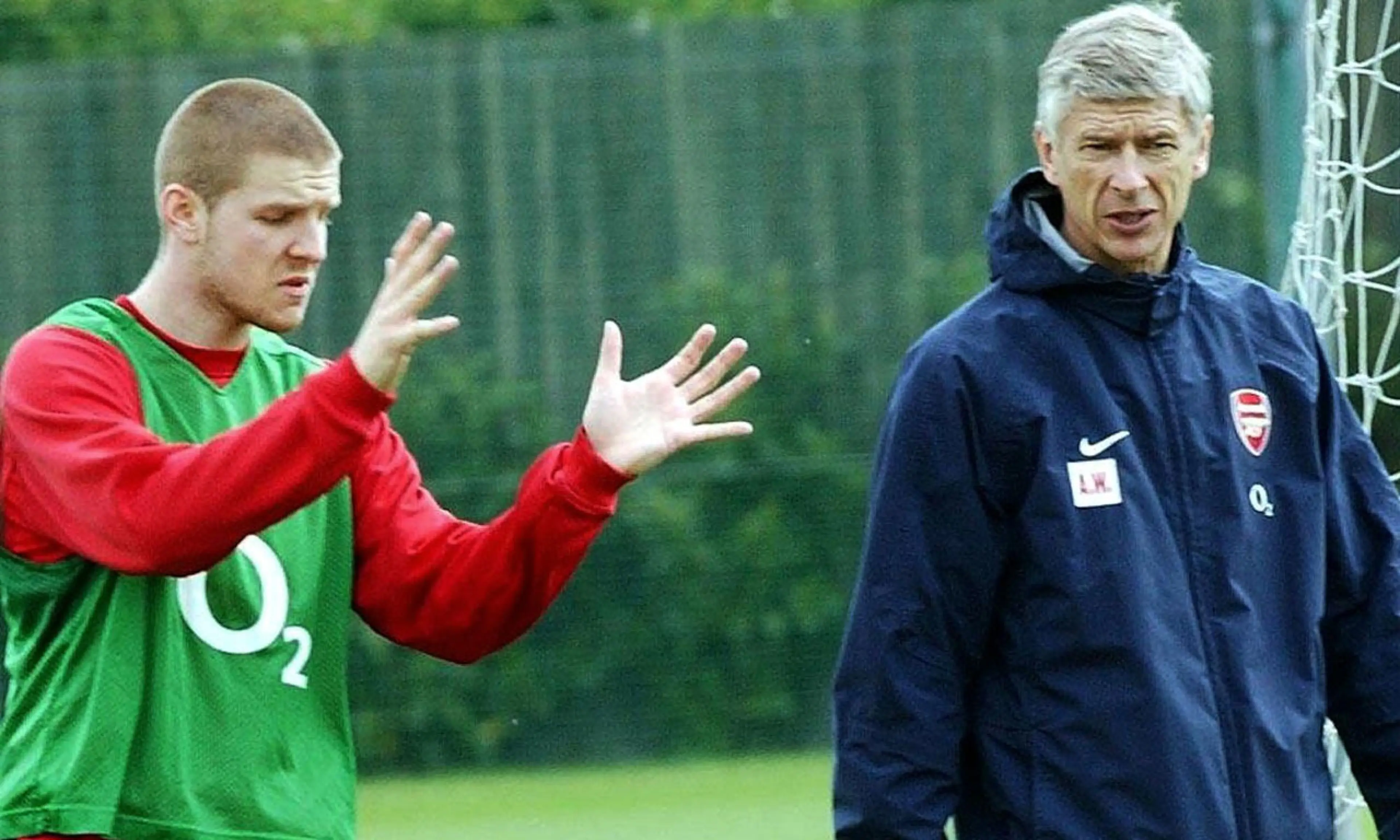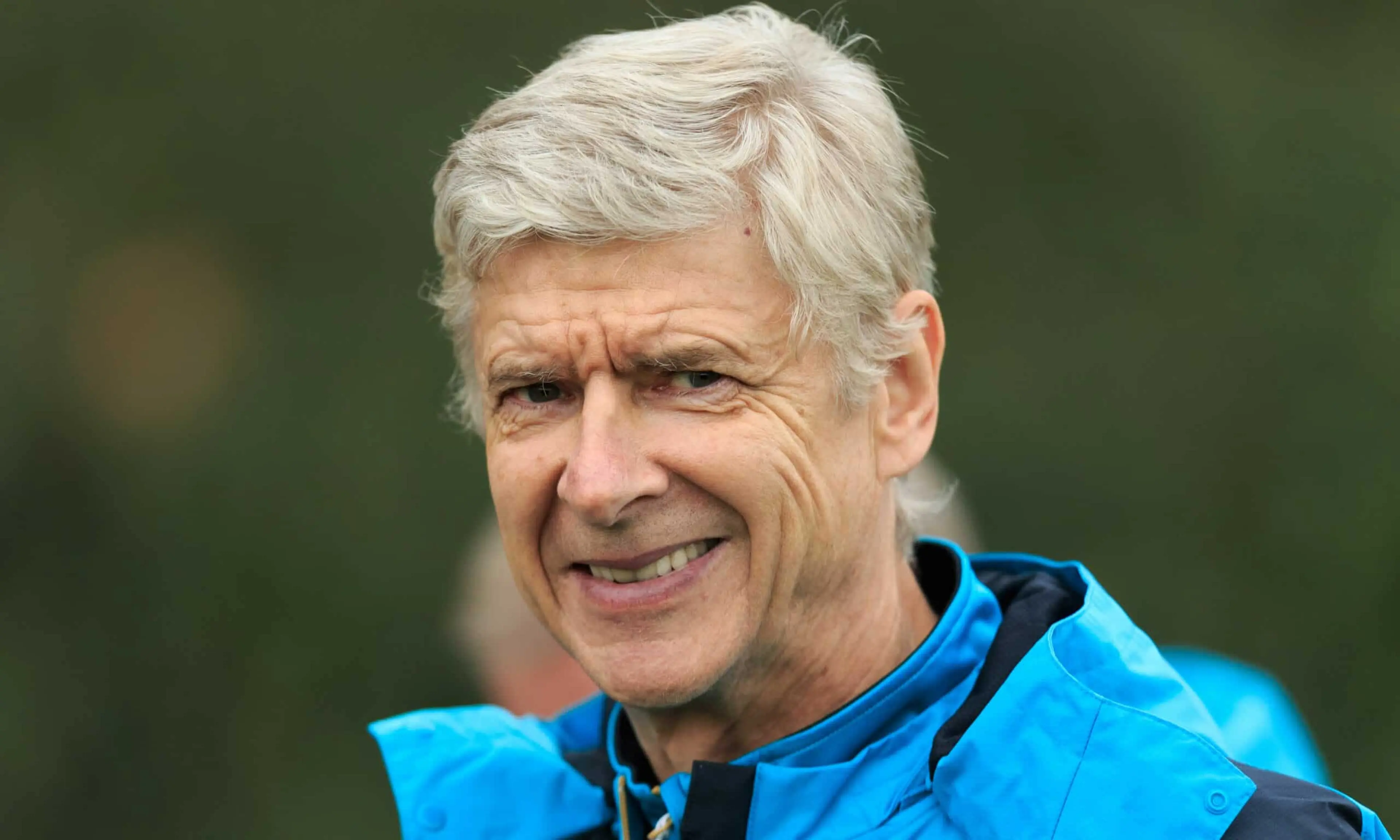Philippe Senderos reveals first talk with Wenger, compares Odegaard with Fabregas and recalls memories of 2006 Champions League final
Published:
In the third part of an exclusive interview with Ladbrokes: Fanzone, former Arsenal defender Philippe Senderos compared Martin Odegard with Cesc Fabregas, discussed the refereeing decision which ruined their Champions League final hopes in 2006 and his disappointment at leaving the Gunners, but he started the interview by talking about Arsene Wenger.
Summing up Wenger in one word…
If I could sum up Arsene Wenger in one word, it would be ‘class’. From my first conversation to my last as an Arsenal player, I had nothing but respect for him. I was always in contact with him, and his door was always open for me and all of his players.
From the very first time I sat down and spoke with Arsene Wenger at 16 years of age, he told me Arsenal were a developing club. We’re talking about one of the best teams in Europe, so I found it hard to understand at first, but you could see that many youngsters were getting opportunities in and around the first team.

Arsene always stressed that if you were good enough, it didn’t matter how old you were, you would get your chance. And before I signed, it’s something I had noticed. He gave many chances to younger players, and I knew straight away that I was capable of being one of them.
The first time stepping out on that training pitch, it’s like nothing I’d ever experienced in my life before. At such a young age, I was playing with World Cup winners, top leaders all over that squad. It was something I’d dreamed of all my life. These are the guys whose posters were plastered all over my wall as a kid, and now I’m playing with them.
Odegaard’s footballing IQ right up there with Fabregas
I was playing in an U17 tournament in England, and then the year after I played in and captained Switzerland in another tournament, at which point there was already a lot of talk about my next move. I’d been in Germany to visit Bayern Munich’s training ground with my family on a couple of occasions, but really I was just waiting for the English clubs to call, because I really wanted to play in the Premier League.
I visited Manchester United, and Liverpool came to Geneva a couple of times, but when the opportunity to go to Arsenal came along, and I visited the training ground, experienced the atmosphere around the place and heard from Arsene Wenger, there was no looking back for me. Everything about Arsenal just felt right for me, so it was an easy decision, despite all the noise and rumours.
I was only 18 when I joined up with the first team, and 19 when I made my debut, so when people look back on the majority of my time with Arsenal, before my loan moves, they forget I was only 23 or younger. I was learning my trade at the highest level you could ever imagine, and I felt at home straight away.

I was living in digs with Cesc Fabregas when I first came over, as he arrived shortly after I did, so straight away we struck up a great friendship. We both helped each other settle into life in a new city, in a new country, and I’d do a lot of translating for him as he couldn’t speak English. He moved to the first team very quickly and you could see straight away that he was on a level of his own. It took me a little while to adapt because I faced a lot of injuries in the first full season with the club, but I loved my time there. It’s where I learned to be a professional.
Cesc was a very quiet, shy kid who didn’t speak a word of English. All of the talking he did was on the field; he was a completely different person on the pitch. He understood the game so much faster than everyone else, and he was only 16 years old. He wasn’t really strong, he wasn’t the fastest, but his footballing brain was out of this world. Even though the English game is famous for its physicality, he was able to fit in because he saw the game much quicker than his opponents.
I’m sure Martin Odegaard has watched many clips of Cesc Fabregas. I can’t say I’ve seen anyone reach the levels of Cesc in this area, but Odegaard’s footballing IQ is right up there with some of the best.
Referee should have applied more sense in 2006 UCL final
I knew I wasn’t going to play in the 2006 Champions League final. I missed the second leg of the semi-final against Villarreal, because I picked up an injury in a game against Tottenham in between the two European legs. It was very, very disappointing for me not to feature in that final, but I was proud I managed to recover from injury and make the bench. I did everything I could to get back to full fitness and make myself available for selection. It just so happened on that night that the way the game went, I didn’t end up getting on the pitch.
As soon as I got injured, I was thinking about the Champions League. Not the final, because we still had a job to do away at Villarreal, and I would have loved to have played a part in that game. But as soon as I felt the injury, it’s all I thought about. And then my focus was on recovering as quickly as possible.
We came up against a fantastic team in Barcelona and it was a really tough night for us. The decision the referee made on the night put us in a really difficult situation. Jens Lehmann makes a foul but there’s an advantage which Barcelona score from, but rather than playing advantage – which I thought would have made more sense – the referee blew his whistle, perhaps rightly if you’re following the law at the time, and sent Jens off.
Arsenal goalkeeper Jens Lehmann sent off in the 2006 Champions League Final against Barcelona pic.twitter.com/6LUQ0jQFzd
— VintageFooty (@VintageFooty) June 5, 2015
That’s the decision which I think about a lot. If there was a little more sense applied to things, the referee would have allowed the game to go on, and we’d have been 1-0 down, but with 11 players still on the pitch. Instead we were down to 10. You know that the team we had at the time would have been more than capable of getting back into a game at 1-0 down with all of our players still on the pitch.
That game was so frustrating because of the big decisions that went against us. The team gave it their all, and that night we felt hard done by. The dressing room is a funny one, because the Champions League final is the last day of the season, so we all know we’re going on holiday from tomorrow – so it’s even more of a shame that we couldn’t go away celebrating the win. When you lose on the last day, and everyone just heads home for a couple of weeks, it makes that journey difficult.
You can look back on what you achieved together as a team throughout the season as a whole, and put things into perspective a little more, but it’s so much easier said than done, particularly when you’re in the moment, or the immediate aftermath of a defeat. Arsene encouraged us all to look back on the positives from the season, and for me personally, there were many – particularly in Europe. We gave it our all until the final whistle, so when I look back now at that campaign, it’s all positive.
I wanted to spend my whole career with Arsenal
I think I knew my time at Arsenal was up in the summer of 2008. In that pre-season, we signed Thomas Vermaelen, and I kind of felt like my time was coming to an end. I knew I wouldn’t be playing as many games as I’d have wanted. The season before, we’d played AC Milan in the Champions League, and as a result, I was handed an opportunity to go and play for them for a season, which was something I thought would be good for me at that stage in my career.
I knew I had a couple of years left on my contract, but I was also conscious of what was best for my career. I say that with regret, too, because I really wanted to spend my whole career with Arsenal. That just wasn’t possible, though, and I had a great chance to go and play for a huge team in Italy.
On this day 15 years ago we won the FA Cup. A dream come true @Arsenal pic.twitter.com/nr9qGvLY3I
— Philippe Senderos (@Philsend4) May 21, 2020
When I returned the following summer, I knew things were going to be even more complicated at Arsenal, and that my opportunities in the first team would be limited, but I didn’t find anything suitable for me in the summer transfer window, which is why I waited until January to sign for Everton.
Arsene signed me as a teenager and saw me grow up – he gave me nothing but confidence, and I had nothing but respect for him. I always felt like I was being recognised for what I was doing right for the club, and that was because of him. I had to leave for the sake of my career, and I learned a lot about my game during my time with Milan. I came back with a different mentality, and actually felt I could bring some important things into the first team, but unfortunately things just didn’t quite work out that way. I was only playing in cup competitions, and that wouldn’t have been enough for me to make the next international tournament squad with Switzerland – so that’s why I had to move away.








